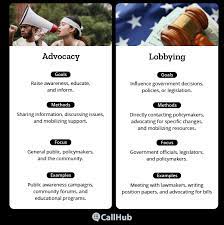- Teacher: Vivian Tete
- Teacher: odel trainer
viviantete.gnomio.com
-
Welcome to your

Now, you are in control!
Moodle is an open-source Learning Management System (LMS) that provides educators with the tools and features to create and manage online courses. It allows educators to organize course materials, create quizzes and assignments, host discussion forums, and track student progress. Moodle is highly flexible and can be customized to meet the specific needs of different institutions and learning environments.
Moodle supports both synchronous and asynchronous learning environments, enabling educators to host live webinars, video conferences, and chat sessions, as well as providing a variety of tools that support self-paced learning, including videos, interactive quizzes, and discussion forums. The platform also integrates with other tools and systems, such as Google Apps and plagiarism detection software, to provide a seamless learning experience.
Moodle is widely used in educational institutions, including universities, K-12 schools, and corporate training programs. It is well-suited to online and blended learning environments and distance education programs. Additionally, Moodle's accessibility features make it a popular choice for learners with disabilities, ensuring that courses are inclusive and accessible to all learners.
The Moodle community is an active group of users, developers, and educators who contribute to the platform's development and improvement. The community provides support, resources, and documentation for users, as well as a forum for sharing ideas and best practices. Moodle releases regular updates and improvements, ensuring that the platform remains up-to-date with the latest technologies and best practices.
Links of interest:
(You can edit or remove this text)
Available courses
This unit specifies the competencies required to conduct community Empowerment. It involves identifying community needs, determining the target group, developing Empowerment plan, carrying out community mobilization, acquiring Empowerment resources and carrying out community Empowerment. It also entails evaluating Empowerment programmes, preparing community Empowerment report and conducting follow ups.
- Teacher: Vivian Tete
- Teacher: odel trainer
The Community Empowerment course aims to equip participants with the skills and knowledge necessary to engage and mobilize communities for positive change. It covers topics such as community organizing, leadership development, advocacy strategies, resource mobilization, and sustainable development practices. Through a combination of lectures, workshops, and practical exercises, participants learn how to build strong, resilient communities capable of identifying and addressing their own needs and challenges. The course emphasizes the importance of collaboration, inclusivity, and grassroots participation in creating lasting social impact.
- Teacher: Vivian Tete
The resource mobilization and fundraising course equips participants with the knowledge and skills necessary to effectively secure funding and resources for organizations or projects. It covers key concepts such as identifying potential donors, crafting compelling fundraising appeals, leveraging various fundraising channels, and building and maintaining donor relationships. Through interactive sessions, case studies, and practical exercises, participants learn strategies and techniques to develop successful fundraising plans tailored to their specific needs and goals. The course empowers individuals to navigate the complexities of fundraising with confidence and proficiency.
- Teacher: Vivian Tete

